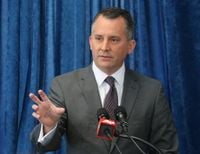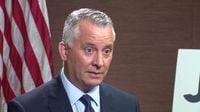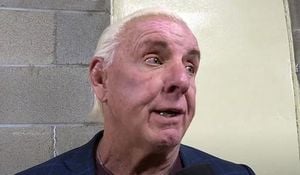David Jolly, a former Republican congressman turned Democrat and outspoken critic of Donald Trump, has officially launched his campaign for Florida governor in the 2026 election, marking the first major Democratic entry into a race that many see as an uphill battle for the party.
Jolly’s announcement on June 5, 2025, comes as Florida remains a firmly Republican state, with GOP voters outnumbering Democrats by more than 1.2 million and Republicans controlling every statewide elected office. The state’s political landscape has shifted dramatically in recent years, with Florida voting for Trump in the last three presidential elections and seeing former Democratic strongholds like Miami-Dade County swing Republican for the first time since 1988.
Despite these daunting odds, Jolly is optimistic about his chances, emphasizing a campaign centered on bridging divides and focusing on practical issues rather than culture wars. “Let’s end the politics of division and return Florida to voters who simply want an economy that works, the best education system in the world, safe communities and a government that stays out of their doctor’s offices and family decisions,” Jolly said in his announcement.
Jolly, 52, who represented the Tampa Bay area as a Republican congressman from 2014 to 2017, made his political evolution clear: after leaving the GOP in 2018 to become an independent, he registered as a Democrat earlier this year. He explained, “I left the Republican Party. I changed.” Unlike former Florida governor Charlie Crist, who famously said the party left him, Jolly’s transition reflects a decade-long journey of shifting views on key issues.
During his time as a Republican, Jolly supported marriage equality, gun control, climate change action, and campaign finance reform. Notably, he was the only Republican congressman to vote against the 2015 Planned Parenthood investigation and proposed moving funds to community health centers to maintain care access. His break with the GOP deepened over what he described as Republicans conflating immigration with crime, a stance he called “wrong and immoral.”
Jolly’s platform for the governor’s race targets some of Florida’s most pressing challenges. He highlights an affordability crisis affecting residents statewide, blaming Republican policies for rising housing and insurance costs. “We have an affordability crisis in the state that has people from all walks of life questioning whether or not they can continue to live in Florida,” Jolly said in a wide-ranging interview. He points to the property insurance market’s collapse, proposing a state catastrophic fund that would remove natural disaster risks from private insurers, potentially cutting premiums by up to 60% for homeowners.
Education is another major focus. Jolly advocates for a 30% pay raise for public school teachers and calls for stricter accountability for private schools accepting vouchers, urging that such schools provide services comparable to public institutions. “If you’re going to educate our kids with public money, then you’re going to abide by the same rules,” he said.
On environmental issues, Jolly supports additional fertilizer restrictions and controlled growth to combat toxic algae blooms, and he emphasizes restoring the Ocklawaha River, damaged by the failed Cross Florida Barge Canal project.
Jolly also calls for ethics reform and increased transparency, including reversing laws that shield the governor’s travel and visitor logs from public scrutiny. He has criticized the DeSantis administration for placing ideological loyalists in key regulatory roles, which he says undermines effective governance.
Running as a Democrat in Florida is no easy task. The state party is at a low ebb, with no Democrats holding statewide office and internal fractures evident. Former state Senate Democratic leader Jason Pizzo declared the party “dead” before leaving to run for governor as an independent, a move some Democrats fear could split the vote and hand victory to Republicans. Prominent Democratic megadonor John Morgan has also expressed doubts about the party’s viability, considering a new political party and gubernatorial bid himself.
Jolly acknowledges these challenges but believes that 2026 could be a “once-in-a-generation election” for change. He is campaigning aggressively, traveling the state to engage voters in communities often overlooked by Democrats, including agricultural and faith-based groups. He aims to build a broad coalition that includes independents and disaffected Republicans, recognizing that “there are not enough Democratic votes to win the governorship.”
On the Republican side, U.S. Rep. Byron Donalds, endorsed by Donald Trump and having raised over $15 million, is the leading candidate so far. Florida’s first lady, Casey DeSantis, is also rumored to be considering a run. Donalds’ campaign quickly dismissed Jolly’s bid, labeling him an “anti-Trump radical leftist” and comparing him unfavorably to Charlie Crist, whom Jolly lost to in 2016.
Jolly’s campaign is distinctly focused on moving beyond the divisiveness that has characterized Florida politics under Governor DeSantis. He calls the culture wars “ugly” and “divisive,” blaming them for fracturing communities and driving policy decisions that prioritize ideology over practical governance. “This is a home for the rich and the reckless under Ron DeSantis,” Jolly said, criticizing the governor’s favoring of billionaires and developers over working-class Floridians.
While Jolly’s candidacy may face skepticism given his past as a Republican and the state’s GOP tilt, his approach reflects a desire to appeal to voters tired of polarization. He aims to champion “Democratic values of an economy where everyone has the opportunity to succeed” and to create a government that serves seniors, veterans, and those in need.
As the 2026 race unfolds, Jolly will need to overcome significant obstacles, including rebuilding Democratic enthusiasm after recent losses and navigating a fragmented opposition field. Yet, his blend of centrist policies, emphasis on affordability, and rejection of culture wars offers a fresh narrative in Florida’s evolving political landscape.
Whether Jolly’s campaign can translate his national profile and statewide outreach into electoral success remains to be seen. But his entry into the race signals that Democrats are willing to contest Florida’s governorship with a candidate who embodies both a break from the past and a challenge to the state’s entrenched political dynamics.





